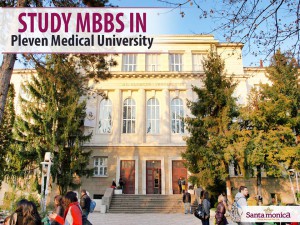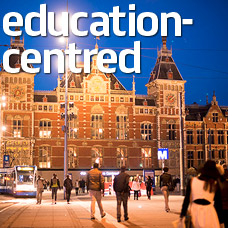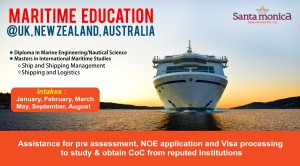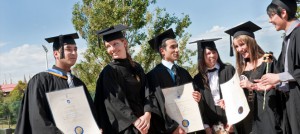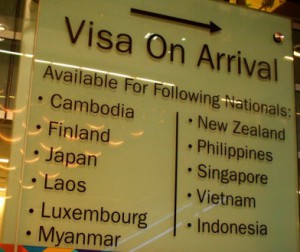

Studying abroad – planning is essential to ensure that adequate funds are at disposal when needed. Moreover, while applying for the student visa, you need to show proof of sufficient funds to cover at least the first year of education.
Education today is the key to professional success and is treated as an investment by parents who are willing to run that extra mile to give their child the best possible education. In recent years, education has been globalised which has increased awareness of the best institutes worldwide or even the fact that under grad, grad education can be done aboard.
This has resulted in more and more Indian students going to various countries for education; be it for grad courses or post grad courses. Studying abroad is expensive and at times the cost can be as high as six times that of the cost in India and hence planning needs to be done to ensure that sufficient funds are at disposal when needed. This is essential because to apply for the student visa, you need to show proof of funds sufficient to cover at least the first year of education.
In 2009, India ranked number 1 (103,260 students) among the international students studying in the US. If you are planning further education in the United States of America (U.S.A), mentioned below is a brief guide on what options are available for funding your education.

University/College Funding Option/Financial Aid
The first thing that comes to your mind is an education loan. But even before you opt for an educational loan, make sure you tap the university/college funding option.
· Undergraduate and graduate courses
Many universities offer financial assistance to international students primarily based on merit and rarely on poor financial background. The amount and type of assistance offered varies for different universities, departments and level of study. Assistance of funds is more likely for graduate studies and less in undergraduate courses. Also funds are more likely to be available in fields like engineering, physical and biological sciences, rather than humanities, social sciences and management.
In order to seek financial assistance, you need to submit the institution’s financial aid application form and the foreign student’s financial aid form, which will be provided by the college and will be administered by the board’s college scholarship service. In addition, some details will be required which may include
· Your total personal annual income if any
· Total annual income of your parents
· Your average annual living expenses
· Some details of you and your parents’ assets
You need not be disillusioned if you do not get the financial aid at the onset, because many students manage to get some financial aid from the university/college after a couple of semesters.

· Post-graduate degrees
Postgraduate students have to indicate their requirement for financial aid at the time of filling in the application form. The different types of financial help available include:
Tuition waiver: This means that the student does not have to pay the tuition fees at the university. However, general fees (for the use of university facilities like the library, computers, and sports and health services) usually have to be borne by the student. A tuition waiver is frequently awarded in conjunction with a scholarship or teaching/research assistantship.
Scholarship / Fellowship: This is usually an outright grant based on the student’s academic ability and performance. Hence, only a truly outstanding student may be considered for this type of award, before being enrolled at the university. A full scholarship would pay for a student’s entire living expenses at that university, whereas a partial scholarship would require additional funds from the student.
Assistantship: Most students, who receive assistance, usually do so in the form of an assistantship, i.e. a cash stipend sufficient for their living expenses, and/or tuition waiver. To get this, they have to work for a maximum of 20 hours per week. This work normally consists of teaching and research activities. Information brochures of most universities give this information. Often, students will have to prove teaching and research abilities before the assistantship is granted. Hence, many universities grant this only after the first semester. You may also be required to take TSE (Test of Spoken English) to qualify for a teaching assistantship.
Other Sources of funding
There are several other sources of funding available for students applying for colleges/universities in the US, especially for grad and undergrad courses. You need to do adequate research on the same. Some of the websites that may be useful in this regard include a website on financial aid for international students and NAFSA Association of International Educators
Who should apply for financial aid?
· Students having high Standardized Examination scores (GRE, GMAT, TOEFL among others)
· Students having evidence of a high level of academic achievement
· Students having teaching experience in a subject offered at the undergraduate level (to increase opportunities for a teaching assistantship)
· Students having outstanding letter(s) of recommendation and an impressive statement of purpose.
· Students having research interest which parallels that of the department and faculty or private funding source ( it increases opportunities for research assistantships and grants)
Education Loan
· International student loan
For an education loan in the US, international students are required to have a US Citizen or permanent resident as a co-signer to apply for the loan. The co-signer must have had good credit history and good employment history (or other income history if the co-signer is not employed). A good US co-signer is critical to getting your loan approved and priced reasonably. The better your co-signer, the better your interest rate will be. The co-signer is responsible for paying back the loan should you default on it. So if you do not have a co-signer in the US, you cannot explore this option. However, there are some banks that waive the co-signer requirement for specific schools. You should check this information from the school website. E.g. Citibank provides loans to international students admitted to Harvard Business School without a co-signer.
Advantages
- · No collateral is required
- · Repayment terms are flexible
- · The loan is paid directly to the student giving him the flexibility to spend the money
- · No application fee is levied
· Interest rate is much lower in comparison to that charged in India. If you apply through a creditworthy co-signer, you will get a low rate of interest. Interest rates are variable and will be essential LIBOR plus a margin and will be reset monthly. The margin will be set by the lender depending on the credit history of the co-signer.
So if you have a co-signer, then taking an international education loan make prove to be financially beneficial because of the low interest rates and flexible repayment terms.
Educational loan from an Indian Bank
If you are unable to get a loan in the US, the next option is to obtain one in India.
Eligibility
- · Admission should be confirmed
- · Loans are not given for correspondence courses
- · Past academic record of the loan seeker should be satisfactory.
· Collateral: Usually for loans up to Rs. 4 lakh, no collateral security is required. For loans ranging from Rs. 4 lakh to Rs. 7.50 lakh, collateral in the form of a satisfactory third party guarantee is required. For loans above Rs. 7.50 lakhs, 100 per cent collateral in any of the form of Immovable property / NSC / Units of UTI / LIC policy / RBI Bonds or any transferable Government securities is required
· Repayment: Repayment has to start 6 months after the completion of the course or if the person gets a job immediately after completing the course, one-month after getting the job. The maximum time given for the repayment is 15 years counted from the date of the first disbursement.
· Interest: Banks offer a choice between fixed and floating rate. Most nationalized banks offer variable rates while private and foreign banks charge fixed rates. The rate can vary between 10 per cent and 15 per cent.
· No prepayment penalty is levied
http://profit.ndtv.com/news/your-money/article-ways-to-fund-overseas-education-315348





